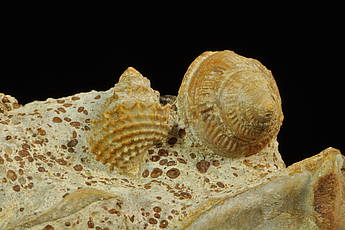
Geology
This is an archived copy of the 2020-21 catalog. To access the most recent version of the catalog, please visit http://bulletin.ndsu.edu.
Today is the ideal time for students to choose a career as a geoscientist. Students with a solid high school background in the sciences and mathematics, liking the outdoors and field studies, and those that are challenged by a rigorous program of classroom, laboratory and field courses, should consider North Dakota State University's program in geosciences. Geoscientists are presently in demand for energy and mineral exploration, and for solving environmental problems.
Career Opportunities
Geologists who studied at NDSU are currently employed in such diverse fields as environmental geology, groundwater resources, education, community planning, cartography, solid-state geochemistry, engineering geology, petroleum and gas exploration, precious-metals mining, and land reclamation.
The Department
The geosciences faculty and instructional staff are dedicated to providing the best possible undergraduate education. Faculty members have earned consistently high ratings for their teaching. They also are active in research and bring the benefits of their research activities to students. Many geoscience undergraduates find part-time employment in faculty research or as laboratory teaching assistants. Courses are taught by a variety of techniques including lectures, labs, active learning, report writing and applied field studies. Field studies have included Black Hills, Death Valley, Washington, Hawaii, Iceland and southern Italy. The department's excellent instructional facilities include computers, X-ray diffraction, petrographic microscopes, GPS and surveying equipment, and a continuously-upgraded collection of rocks, minerals, air photos and maps. Training in geographic information systems is provided through the Warren D. Kress Advanced Geography Laboratory. The Optical Dating and Dosimetry Laboratory is used to determine the depositional age of sediments. The Quaternary Entomology Laboratory and the Cosmogenic Nuclide Preparation Laboratory are used for studies of climate change. The Environmental Geomechanics Laboratory is used for studies of water quality.
A core of geology courses, along with training in mathematics, physics, chemistry, soils, geography, computer science and technical writing will prepare students to handle the diverse challenges encountered in this professional career.
High School Preparation
A solid background in English, mathematics (through trigonometry), biology, chemistry and physics is strongly recommended.
The Faculty and Staff
S.S. Day, Ph.D., University of Minnesota, 2012, Fluvial Geomorphology, Slope Stability, Geospatial Sciences
B.J.C. Laabs, Ph.D., University of Madison, Wisconsin, 2004, Quaternary Geology, Paleoclimate, Geochronology
K. Lepper, Ph.D., Oklahoma State University, 2001, Glacial Geology, Hydrogeology, Geophysics
P. Oduor, Ph.D., University of Missouri, Rolla, 2004, Geochemistry, Geographic Information Systems
J.L. Rock, M.S., North Dakota State University, 2009
B. Saini-Eidukat, Ph.D., University of Minnesota, 1991, Mineralogy, Petrology, Geochemistry
L.S. Tackett, Ph.D., University of Southern California, 2014, Paleontology, Stratigraphy
S.A. Wood, Ph.D., Princeton University, 1985, Aqueous Geochemistry, Mineral Deposits
A.C. Ashworth, Ph.D., University of Birmingham, England, 1969, Earth History, Paleontology, Paleoecology (Emeritus)
D.P. Schwert, Ph.D., University of Waterloo, Canada, 1978, Quaternary Geology, Land Use (Emeritus)
Special Note
Students in the geosciences program are encouraged to use their elective credits in courses that will enhance their professional skills (i.e., foreign languages, geography, archaeology, soils, etc.). In addition, the Department of Geosciences offers elective courses in environmental geology, glacial geology, geochemistry, hydrogeology, geophysics and remote sensing.
Please note this is a sample plan of study and not an official curriculum. Actual student schedules for each semester will vary depending on start year, education goals, applicable transfer credit, and course availability. Students are encouraged to work with their academic advisor on a regular basis to review degree progress and customize an individual plan of study.
| First Year | |||
|---|---|---|---|
| Fall | Credits | Spring | Credits |
| GEOL 105 & 105L (Gen Ed Category S) | 4 | GEOL 106 & 106L (Gen Ed Category S) | 4 |
| MATH 165 (Gen Ed Category R) | 4 | CHEM 122 or 151 (Gen Ed Category S) | 3 |
| CHEM 121 or 150 (Gen Ed Category S) | 3 | CHEM 122L or 161 (Gen Ed Category S) | 1 |
| CHEM 121L or 160 (Gen Ed Category S) | 1 | MATH 166 | 4 |
| ENGL 110 (Gen Ed Category C) | 4 | ENGL 120 (Gen Ed Category C) | 3 |
| 16 | 15 | ||
| Second Year | |||
| Fall | Credits | Spring | Credits |
| GEOL 410 | 4 | GEOL 422 | 3 |
| GEOL 420 & GEOL 421 | 4 | GEOL 423 | 1 |
| GEOG 455 | 4 | GEOL 412 | 3 |
| Gen Ed Wellness | 2 | GEOL 350 & GEOL 303 | 4 |
| Gen Ed Humanities/Fine Arts and Global Perspectives | 3 | ||
| 14 | 14 | ||
| Third Year | |||
| Fall | Credits | Spring | Credits |
| PHYS 211 or 251 | 3 | PHYS 212 or 252 | 3 |
| PHYS 211L or 251L | 1 | PHYS 212L or 252L | 1 |
| SOIL 444 | 3 | GEOL 491 (Capstone ) | 2 |
| GEOL 450 | 3 | GEOL 301, 302, or 496 | 2 |
| GEOL 457 | 4 | Gen Ed Humanities/Fine Arts | 3 |
| ENGL 324 | 3 | Gen Ed Social & Behavioral Science and Cultural Diversity | 3 |
| 17 | 14 | ||
| Fourth Year | |||
| Fall | Credits | Spring | Credits |
| CSCI 122, 160, or 227 | 3 | Electives | 13 |
| Gen Ed Social & Behavioral Science | 3 | College Humanities or Social Sciences | 3 |
| College Humanities or Social Sciences | 3 | ||
| Electives | 7 | ||
| 16 | 16 | ||
| Total Credits: 122 | |||
